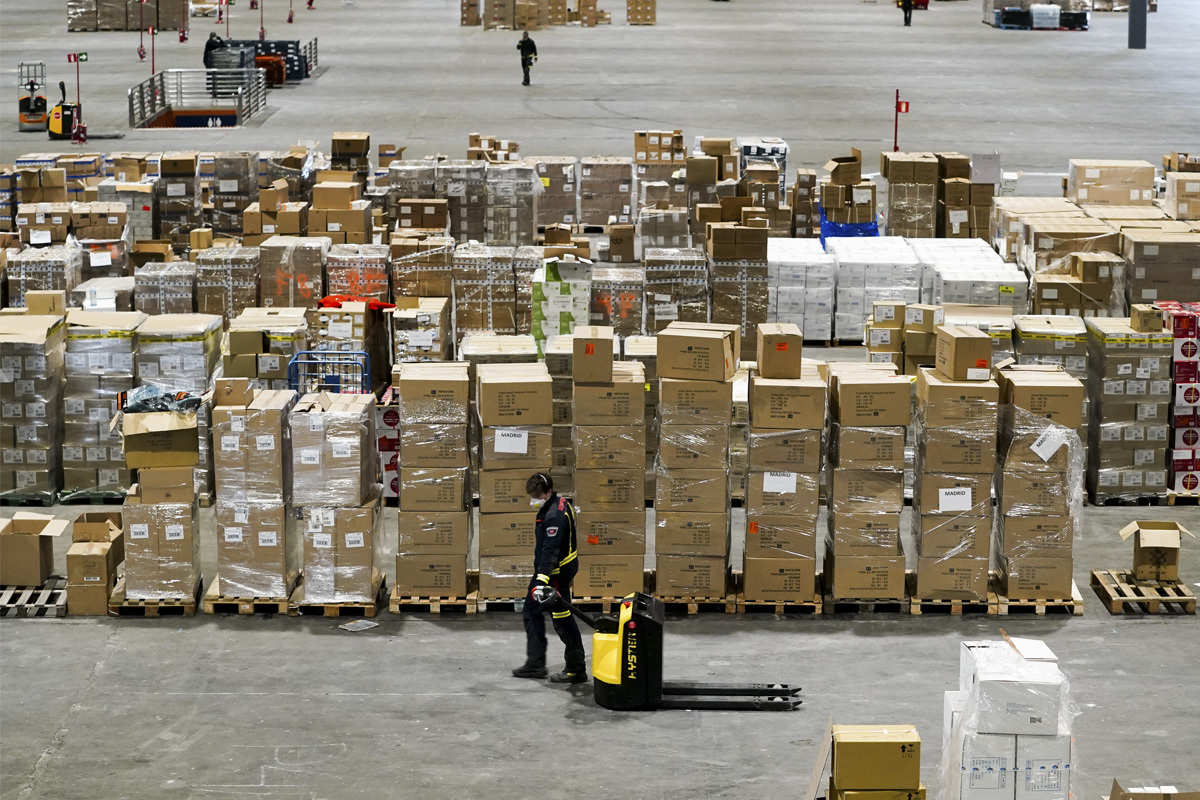- Breaking news - check the latest news on the coronavirus crisis
- The map: the advance of the coronavirus in Spain
- Government. Sanidad delivered the 'pirate test' to the Community of Madrid without validating them
The Ministry of Health acknowledges that the failed tests that it acquired from the Chinese company Shenzhen Bioeasy Biotechnology were not 8,000, but 58,000. That is, in addition to those that were distributed -without prior validation- to the Community of Madrid, there were another 50,000 who "arrived in different batches" and who also did not meet the minimum level of reliability, according to sources in the department of Salvador Illa who confirmed this newspaper. .
Health insists that those 50,000 tests were never used and have already been returned. And that the other 582,000 that the Executive had lauded with Bioeasy are also returned. In other words, the planned shipment will not take place.
Instead, the government will receive other rapid tests, with higher certification and proven reliability. And, in addition, they will not be handed over to the autonomies without first having validated them, contrary to what was done with the Community of Madrid, which was provided without knowing if they worked well or not.
But the most surprising thing, as confirmed by sources from the Ministry of Health to EL MUNDO, is that the Executive has once again trusted Shenzhen Bioeasy Biotechnology to send rapid tests, despite the fact that the Chinese Embassy in Spain revealed that the company did not even It is officially licensed to sell medical products and it is not on the list of suppliers recommended by the Asian giant.
Although it need not be remembered, the Government is requesting the tests from the same company again, despite the fact that it has already hailed a whole ministry of the fifth European power, and at the worst possible moment, when the tests were most urgent.
640,000 units of "a new test model"
The tests that Sanidad bought did not work well because they had a sensitivity of 30%, when the ideal is that they exceed 80%. And what does that mean? "That the tests were not valid, because they gave many false negatives," health officials from the Community of Madrid explained to this newspaper.
The manufacturer in China that sold the useless products "will now replace" them with "a new test model," the ministry said. "This means that the manufacturer will send 640,000 units of a new test model with the required specifications and sensitivity in the next few days," they add.
"Soon we will have these rapid tests that do seem to have the necessary quality," said the director of Emergencies, Fernando Simón , at a press conference this Friday. Meanwhile, in Spain, a little more than 15,000 tests are carried out a day using the slow but precise test known as PCR .
The Government assures that it was a Spanish supplier that mediated the purchase of the 640,000 tests, although it refuses to publish its name. The Foreign Minister, Arancha González Laya, has insisted on blaming the intermediary through an explanation he gave on Radio Euskadi . "We are not necessarily very used to buying in China, so there are many intermediaries that appear and offer us bargains that later turn out not to be."
Minister Illa announced this Friday that other remittances will be received soon with more than five million tests that will be "verified" before delivering them to the autonomous communities.
The "anger" of health personnel
The rapid test scandal has "pissed off" healthcare workers, who were the first recipients of these diagnostic tests. The CSIF , the majority public sector union, issued a harsh statement in which it stressed that "public health personnel face the weekend with outrage, disbelief and exhaustion at the latest information on the acquisition of failed tests, the shortage of means or the saturation of the centers ".
To this "are added statements by political leaders at national and regional level that do not help our professionals and spread a general feeling of anger," adds this union.
The main opposition political parties were quick to demand accountability. Both the PP and Vox sued the government for the administrative file regarding the purchase of the tests. The popular ones asked for the appearance of the minister of Property, María Jesús Montero, in addition, by his implication in the centralization of purchases.
According to the criteria of The Trust Project
Know more- Madrid's community
- China
- Spain
- Salvador Illa
- Maria Jesus Montero
- Arancha González Laya
- Coronavirus
- Covid 19
GovernmentThe Ministry of Health recognizes that the failed tests that have been returned to China are more than 50,000
Government Health delivered the 'pirate test' to the Community of Madrid without validating them
Government Health rapid tests do not work and China advises that they were purchased from a company without a license

